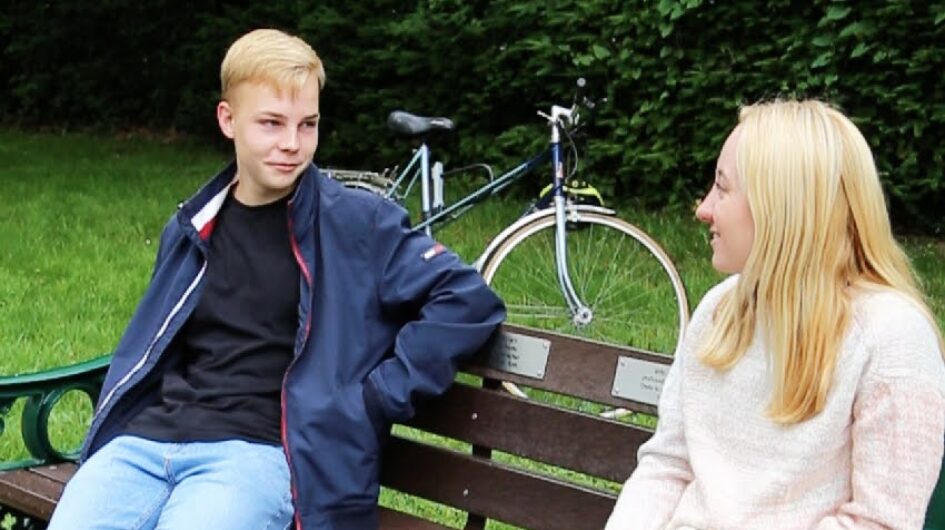Do you need to speak to someone about your emotional wellbeing?
Just as you’d encourage your child to brush their teeth or do some exercise every day, there are steps that we can all take every day to look after our emotional wellbeing & mental health.
These tips from Make It Count will help many children and young people. Some people will need more support – and that’s ok too. We are here to help!

Day to day
Five ways to wellbeing
Research shows that there are five simple things you can do as part of your daily life to build resilience, boost your wellbeing and lower your risk of developing mental health problems.
Check out the video we’ve developed with our Youth Board below for more information.
Think about how you can incorporate the five ways to wellbeing into your family’s life – perhaps you could take on this new challenge together to improve everyone’s emotional wellbeing.

Talk about how you’re feeling
Mental health is just as important as physical health.
You can show this by talking about how going for a walk outdoors clears your head or how talking to your friends is a chance to share how you are feeling.
Try and find some time every day to speak to your child or young person about what’s going on with them without any distractions such as homework, TV or phones.
We all experience ups and downs – sometimes we feel great, and sometimes we don’t. This can be caused by life events such as a new job or school, change in relationship or the loss of someone we love.
Try and reassure your child that it is normal to feel different things at different times – and that talking about difficult feelings with people we trust is a really brave thing to do.
Model good habits
Children and young people often learn from what they see at home and school.
It’s much easier for them to understand what good habits look like if they see how you are taking care of your own emotional wellbeing. This could be as simple as taking some time for yourself to have a bath, meet a friend or read a book – whatever it is that you like to do to look after yourself.
When you speak to your child or young person, you could tell them why you like these activities, how they make you feel, and perhaps make suggestions for activities that they might like to do to look after their wellbeing.
Notice changes in behaviour
You know your child or young person best – even if they aren’t telling you in words, you will likely notice if they are behaving differently than usual.
Knowing what behaviour is normal for your family members makes it easier to notice when something changes, which could be a sign that someone is struggling.
Showing that you have noticed that something is wrong may also make it easier to start a conversation with your child or young person if you are concerned.

Think of the bigger picture
Some things that may look like a mental health challenge may be the result of other things going on in our lives. It is important to remember that if a child or young person is behaving like this, they may be reacting in a normal way to something that they are experiencing.
This does not mean that your child or young person can’t get support, it just means that how we talk about it will be a little different. It might also mean that another service or organisation is better placed to support your child or young person.
If this is the case we will explain this to you and tell you about other services that may be able to help you and your family.
When things get tough
It is normal to experience ups and downs as we move through life, and unfortunately these can sometimes have a negative effect on our emotional wellbeing and mental health. Everyone will react differently, and some people may require more support than others – everyone’s experience is valid.
Here are some tips for if you are concerned about a child or young person in your life.
Let your child or young person know why you have concerns. You could mention what changes you have noticed – for example, you may have noticed that they are spending less time with their best friend.
If they don’t want to talk, you could say that you’re happy to talk if that would help, but could also offer to consult websites for help or help them find someone else to speak to you if that’s what they would prefer.
You may both find it easier to talk and share feelings while doing an activity you often do together standing or sitting side-by-side rather than having a face to face conversation.
As they grow and become more independent, young people are not always looking for someone to solve their problems for them, but someone with whom they can share their feelings and will listen to them without judgement.
If you’re still worried, we recommend that you speak to your GP or someone from school for advice. They will be able to tell you about the support available in Cardiff and the Vale of Glamorgan.
Your child can be part of this discussion. They are the expert on themselves, and be able to say what has been going on for them and how it’s affecting them. This will be very helpful for us to support your child if they are referred to Emotional Wellbeing & Mental Health.
If you have serious concerns about your child’s wellbeing, contact Young Mind’s Crisis Messenger service by texting YM to 85258 for 24/7 support from trained volunteers.
If you cannot keep your child, yourself or others around you safe, call 999 or go straight to A&E.
For more information, go to I need help now!
It’s really important that you look after yourself when you and your family are facing tough times.
Check out the support available for families here.


